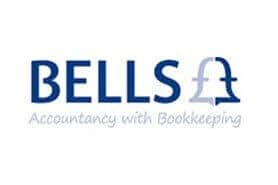If you are someone who runs their own business, you may be aware of how frustrating it can be to collect unpaid invoices. For small businesses with limited resources, it can be a time-consuming exercise and disrupt you from other important responsibilities. Therefore, credit control is so important, to not only save you time, but to build closer relationships with your customers and have a better understanding of cash flow. There are a few ways you can improve your credit control, such as setting clear deadlines and invoicing properly. Find out how you can ensure better credit control for your business.
What is credit control?
Credit control is the process of managing your business’ credit by only giving credit to customers who are most likely to and have the funds available to pay it back. The aim of credit control is to make sure that your business does not accumulate a large number of invoices that remain unpaid and need to be chased up.
Why is credit control important?
Losing control of your credit can have profound consequences for your business, so collecting payments on time is essential. Find out why credit control is so important for a successful business:
Time management
One of the reasons so many businesses prioritise good credit control is due to how time consuming it can be to chase these unpaid invoices. Having to get in contact with your debtors to request payment, constantly sending reminders and completing the process of debt collection can cause you and your employees to waste many hours that could be spent more productively. Having an organised credit control process in place can eliminate this wasted time.
Client relationships
If you do not manage credit control effectively, this can lead to you constantly chasing your clients for payment and putting a strain on your relationship, which could affect how you work together in the future. Setting clear payment dates and agreeing on deadlines in advance, means that your clients will know what to expect and communication will be improved.
Avoid cash flow problems
If you have a large list of debtors that you are awaiting payment from, this can quickly lead to cash flow problems for your business. If you have created a cash flow forecast, outstanding invoices can cause disruption to your original plans and lead to you having to reduce outgoings in other areas just so you can cover your running costs.
How can you manage credit control?
To avoid having to worry about any credit control problems, setting clear deadlines to every client can avoid encountering these problems in the first place. Sending out invoices on time can help your clients to understand that these deadlines are not flexible, and they must be paid on time. This can also avoid you having to continually chase payment, which may affect your relationship with these customers over time. You should also take note of any clients that are consistently late with payments and make more of an effort to chase them up to avoid a repeated scenario.
If you would like to manage your business cash flow more effectively, our team at Bells Accountants can offer their assistance. Our expert bookkeepers can help you to keep up to date with your business income and expenses, so that you can plan more effectively for the future and improve your credit control. If you would like to speak to us regarding our accountancy services, give us a call on 020 8468 1087 or email .


